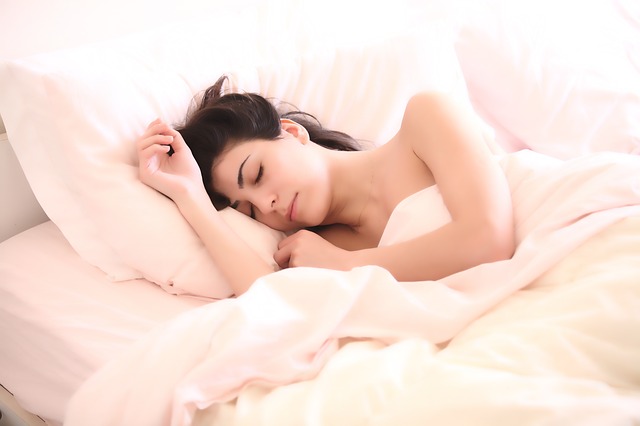Losing sleep puts you at a disadvantage for the entire day, and loses you part of the next day in sleep debt. Keep it up over the course of a few days, and you’ll end up tiring yourself out and make it increasingly likely that you’ll crash.
When you’re lacking in sleep it may seem logical to sleep in when you can, but this action will become a detriment to your health rather than a solution. The best way to help you sleep better is to change one (or perhaps all) of the following 5 habits.
Five Bad Habits That Ruin Your Sleep
Lack Of Exercise
You don’t have to pump iron every night, but even a little exercise allows you to sleep better at night and have more energy during the day. While there are no definite correlations between exercise and sleep, studies have found several links between the two.
For example, one study found walking, a moderate-intensity aerobic exercise, reduced the time needed to fall asleep and improved the length of sleep for subjects with chronic insomnia.
Whether it be stretching at home or walking the dog, regular exercise can reduce stress levels, a major disruptor when it comes to getting enough sleep.
Dr Michael Breus says exercise increases a person’s time spent in deep sleep, the period of sleep that restores the body physically.
You’ll also see a marked improvement across the board, in your mood and overall happiness to your ability to get out of bed quickly in the morning.
Technology Use Before Bed
A survey on technology use in Australia revealed 1 in 2 parents feel technology is affecting their sleep, and they’d be entirely right.
Blue light before bed suppresses melatonin and affects your bodily ability to regulate during the night more than any other type of light, and it’s the one most commonly associated with smartphones, TVs and laptop screens.
Instead, try reading a book or unwinding in another way before bedtime, and you’ll see a marked improvement in days.
Set yourself a 30 minute no screen time before you go to bed to give your body the best chance of getting a good night’s sleep. Set an alarm on your phone if you need to, but don’t check it compulsively. Put it down, relax, then sleep.
Caffeine Consumption
This one is a no-brainer, but taking things that keep you awake just before you sleep is a really, really bad idea.
That might sound obvious, but where it gets tricky is how long caffeine stays in your system. You might have a coke with your dinner, but while it reaches peak level in the body within 30-60 minutes, caffeine’s half-life (that is, when 50% has left your system) is at 3 to 5 hours.
Try to stop drinking caffeine at least that time before bed. Anything after that is disastrous, anything before it might still be an issue. Keep it to breakfast, coffee and lunch drinks.
Bedtime Snacks
It’s not just caffeine, giving your body fuel just before bed means that you’re telling it that it’s time to get going and work.
Eating well in general is linked to better sleep, just like exercise, in that positive habits breed positive outcomes for the body.
Snacking, especially before bed, throws us off our regular habits, and let’s face it, when it comes to snacks we don’t tend to go for a late-night celery stick. Instead, we gravitate to high-sugar and fatty foods that spike our energy just before we sleep.
Sleeping In
Sleeping in works against your body clock and rhythms significantly. Even if it seems like a good thing for your body, it’s the equivalent of your body performing emergency repairs rather than routine maintenance.
Here’s a quick experiment. If you get up at 6.30am one day, and the next day wake up at 11am, would you expect to go to sleep at the same time for both days?
If the answer is yes, you’re giving yourself a big handicap – every time you wake up at 11 on a Sunday, you’d have to get to sleep early for a Monday morning while still being much more alert and awake than if you’d been up five hours early.
That means that you won’t get sufficient sleep and that you’ll have a harder time getting to sleep on the Sunday evening.
Find Your Way To The Land Of Nod Easier
Ultimately, starting up good habits and getting other aspects of your life in order contributes to healthy sleep.
Sleep is a routine, going to bed and waking up at roughly the same time is part of that routine, and the other routines that you have in your day (exercise, food and drink, etc) all inform each other.
You can find much more information on living a holistic lifestyle in these free magazines and on our YouTube channel.
Shay de Silva






